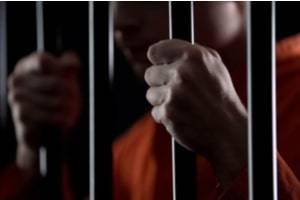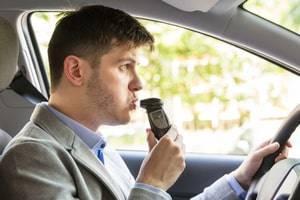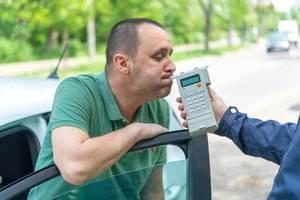Recent Blog Posts
Multiple DWI Convictions Can Add Up to Longer Prison Sentences
 A Texas man was recently sentenced to 65 years in prison after his ninth conviction for driving while intoxicated. The defendant was charged following a single-car accident, during which he allegedly had a 0.263 blood alcohol concentration. While this may seem like severe punishment for an incident in which no one was harmed, it is not unusual in Texas. Courts have issued life sentences to offenders who had a history of repeated DWI convictions. Judges usually rationalize the harsh sentences by describing the defendant as a habitual offender who has shown that they will not change their behavior and will continue to be a danger to others. Being convicted for multiple DWI offenses not only enables courts to issue more severe punishments but may also motivate a judge to utilize the full extent of those punishments.
A Texas man was recently sentenced to 65 years in prison after his ninth conviction for driving while intoxicated. The defendant was charged following a single-car accident, during which he allegedly had a 0.263 blood alcohol concentration. While this may seem like severe punishment for an incident in which no one was harmed, it is not unusual in Texas. Courts have issued life sentences to offenders who had a history of repeated DWI convictions. Judges usually rationalize the harsh sentences by describing the defendant as a habitual offender who has shown that they will not change their behavior and will continue to be a danger to others. Being convicted for multiple DWI offenses not only enables courts to issue more severe punishments but may also motivate a judge to utilize the full extent of those punishments.
Consequences of Multiple Convictions
One way that a DWI conviction can be a felony in Texas is if it is your third DWI conviction. According to Texas law:
How to Dress and Behave at Your DWI Trial
 Your trial for driving while intoxicated is in some ways a judgment of your character. The court will consider who seems more credible when weighing your testimony against the testimony of the arresting police officer and other witnesses. Do you seem like an honest and trustworthy person? How you look and behave will help answer that question. Proper appearance and behavior will not guarantee that you will win your DWI case, but giving a bad impression could create a negative bias that is difficult for you to overcome. Here are four keys to making a good impression in your DWI trial:
Your trial for driving while intoxicated is in some ways a judgment of your character. The court will consider who seems more credible when weighing your testimony against the testimony of the arresting police officer and other witnesses. Do you seem like an honest and trustworthy person? How you look and behave will help answer that question. Proper appearance and behavior will not guarantee that you will win your DWI case, but giving a bad impression could create a negative bias that is difficult for you to overcome. Here are four keys to making a good impression in your DWI trial:
- Proper Appearance: You are expected to dress conservatively and look as clean-cut as possible when appearing in court. For men, you should wear a business suit or at least a button-down shirt with a tie and dress pants. For women, a skirt or slacks will work, as long as they look professional and are not revealing. You should remove excessive piercings, keep your hair-style tame, and cover up your tattoos if possible.
Will You Lose Your Job Because of Your DWI?
 There are many ways that being convicted of or even just charged with driving while intoxicated can affect your life. One of the most pressing questions that people ask is “Will I lose my job?” That is an issue that your employer, and not a criminal court, will decide. Most employers in Texas hire workers “at will,” meaning that your employer can terminate your employment at any time and without needing to give a cause – as long as the decision is not based on discriminating against protected traits such as race or gender. For many employers, a DWI conviction or arrest may be enough of a reason to fire an employee.
There are many ways that being convicted of or even just charged with driving while intoxicated can affect your life. One of the most pressing questions that people ask is “Will I lose my job?” That is an issue that your employer, and not a criminal court, will decide. Most employers in Texas hire workers “at will,” meaning that your employer can terminate your employment at any time and without needing to give a cause – as long as the decision is not based on discriminating against protected traits such as race or gender. For many employers, a DWI conviction or arrest may be enough of a reason to fire an employee.
Incarceration
Your job will likely be in peril if you are sentenced to jail or prison as part of your DWI conviction. The punishment for a first-time DWI conviction can include three to 180 days in prison and may include more time if there are aggravating factors such as a blood alcohol concentration of 0.15 or over. Your employer does not have to preserve your job while you are incarcerated. Even if your employment contract protects your job, it may have a clause that voids the contract if you are convicted of a crime.
Do Ignition Interlock Devices Cause Distracted Driving Accidents?
 People across the U.S. who have been convicted of driving while intoxicated are using breath alcohol ignition interlock devices (BAIID) in order to retain their driving privileges. A BAIID is a Breathalyzer connected to a vehicle that requires the user to provide a breath sample to prove that they have not been drinking. In Texas, first-time DWI offenders can opt to use a BAIID to continue driving during their driver’s license suspension. BAIID installation is mandatory for people who have been convicted of DWI for a second time or had a blood alcohol concentration of 0.15 percent or greater. While proponents of BAIIDs say that the device has saved numerous lives by stopping people from driving drunk, a smaller group of skeptics point out that the requirement to continue providing breath samples while driving has caused fatal crashes.
People across the U.S. who have been convicted of driving while intoxicated are using breath alcohol ignition interlock devices (BAIID) in order to retain their driving privileges. A BAIID is a Breathalyzer connected to a vehicle that requires the user to provide a breath sample to prove that they have not been drinking. In Texas, first-time DWI offenders can opt to use a BAIID to continue driving during their driver’s license suspension. BAIID installation is mandatory for people who have been convicted of DWI for a second time or had a blood alcohol concentration of 0.15 percent or greater. While proponents of BAIIDs say that the device has saved numerous lives by stopping people from driving drunk, a smaller group of skeptics point out that the requirement to continue providing breath samples while driving has caused fatal crashes.
Distracted Driving
Once the BAIID user has started their vehicle, they must continue to prove that they are not drinking by providing breath samples every five to 15 minutes, which are commonly called rolling retests. A recent investigation by The New York Times found dozens of crashes across the country that were caused by drivers who were distracted by having to take a rolling retest. There are several distractions related to the retests:
What Does ‘No Refusal’ Mean with Texas DWI Law?
 Law enforcement departments across Texas are currently going through their longest “no refusal” period of the year for people suspected of driving while intoxicated. “No refusal” initiatives usually take place during holiday weekends, but many departments consider Thanksgiving to New Year’s Day to be one long “no refusal” period. Law enforcement promotes “no refusal” as a time when drivers suspected of DWI will not be allowed to refuse a sobriety test. It is somewhat misleading to say that departments designate “no refusal” periods, and explaining why can help you better understand your rights during a DWI stop:
Law enforcement departments across Texas are currently going through their longest “no refusal” period of the year for people suspected of driving while intoxicated. “No refusal” initiatives usually take place during holiday weekends, but many departments consider Thanksgiving to New Year’s Day to be one long “no refusal” period. Law enforcement promotes “no refusal” as a time when drivers suspected of DWI will not be allowed to refuse a sobriety test. It is somewhat misleading to say that departments designate “no refusal” periods, and explaining why can help you better understand your rights during a DWI stop:
- You Can Refuse But With Legal Consequences: Firstly, “no refusal” refers to only blood and breath tests used to measure your blood alcohol concentration and not field tests of your balance or gaze. Secondly, you can refuse a sobriety test without consequence if you are not under arrest. Finally, you can still refuse a sobriety test after your arrest, though your driver’s license will be suspended and the officer will likely request a warrant to obtain your blood sample. Resisting a blood test after a warrant could lead to additional criminal charges.
What Does Your BAC Result Mean for Your DWI Charge?
 The numbers from your blood alcohol concentration test hold a lot of weight in determining whether you will be charged with driving while intoxicated. The big number in almost every state is 0.08 percent BAC, which is the legal limit that determines whether you are intoxicated (Utah is the exception because it recently lowered its limit to 0.05 percent). However, there is more to BAC levels in Texas law than a simple 0.08 cut-off point. You can still be charged with DWI when your BAC is below the legal limit, and the level of the charge can increase depending on how much your BAC exceeds the limit.
The numbers from your blood alcohol concentration test hold a lot of weight in determining whether you will be charged with driving while intoxicated. The big number in almost every state is 0.08 percent BAC, which is the legal limit that determines whether you are intoxicated (Utah is the exception because it recently lowered its limit to 0.05 percent). However, there is more to BAC levels in Texas law than a simple 0.08 cut-off point. You can still be charged with DWI when your BAC is below the legal limit, and the level of the charge can increase depending on how much your BAC exceeds the limit.
Less than 0.08
The 0.08 percent BAC limit is based on the percentage of alcohol in a person’s bloodstream that it usually takes to impair their driving capabilities. Your alcohol tolerance may be different than that, depending on factors such as your:
- Weight
- Gender
- Body chemistry
Deferred Adjudication Now Available to DWI Defendants
 A new law went into effect in Texas on Sept. 1 that allows people who committed driving while intoxicated for the first time to receive deferred adjudication. People who plead guilty to DWI and complete their probation can prevent a conviction from appearing on their public criminal record. However, a subsequent DWI charge would still be treated as a second DWI offense in court. The deferred adjudication law is seen as an alternative to full prosecution for people who made a one-time poor decision, such as underage drinkers or people driving home after a holiday family dinner.
A new law went into effect in Texas on Sept. 1 that allows people who committed driving while intoxicated for the first time to receive deferred adjudication. People who plead guilty to DWI and complete their probation can prevent a conviction from appearing on their public criminal record. However, a subsequent DWI charge would still be treated as a second DWI offense in court. The deferred adjudication law is seen as an alternative to full prosecution for people who made a one-time poor decision, such as underage drinkers or people driving home after a holiday family dinner.
Who Qualifies?
As previously mentioned, deferred adjudication is available to DWI defendants if they have never been previously convicted for DWI. Also, this option is unavailable if the DWI incident occurred before the law was enacted on Sept. 1. The judge will decide whether deferred adjudication is appropriate given the circumstances of the case. You may be denied deferred adjudication if:
When Can You Expunge a DWI Arrest from Your Record?
 An arrest and conviction for driving while intoxicated will stay on your criminal record long after any court ruling or punishment. You may not realize the effect that a DWI record can have until it shows up during a background check when you are applying for a job. This may be particularly frustrating if you were never convicted of DWI. A DWI arrest and charge remain on your record unless you take steps to expunge them. However, your case must meet specific conditions in order to be eligible for expunction in Texas.
An arrest and conviction for driving while intoxicated will stay on your criminal record long after any court ruling or punishment. You may not realize the effect that a DWI record can have until it shows up during a background check when you are applying for a job. This may be particularly frustrating if you were never convicted of DWI. A DWI arrest and charge remain on your record unless you take steps to expunge them. However, your case must meet specific conditions in order to be eligible for expunction in Texas.
What Is Expunction?
Criminal charges and convictions are normally visible to anyone who conducts a criminal background check on you. With DWI convictions in Texas, you can petition to have your conviction sealed from everyone except for law enforcement and employers in sensitive fields, such as education. Texas allows record sealing for some first-time DWI offenders whose conviction did not include aggravating charges. Expunction removes the charge and conviction from your record so that it does not appear in any searches of official public records (Your arrest may still appear in an internet search if a story about your arrest was published and is archived on a private media company’s website).
Immigrants At Risk If Convicted for DWI
 A U.S. representative from central Texas recently claimed that half of the people arrested for driving while intoxicated on Interstate 35 are illegal immigrants. At a forum on the Mexican border crisis, the congressman said that local law enforcement had told him this, as well as that most illegal immigrants had no identification but police officers had to let them go with just a ticket because the jails are full. Fact-checkers debunked this claim on multiple levels:
A U.S. representative from central Texas recently claimed that half of the people arrested for driving while intoxicated on Interstate 35 are illegal immigrants. At a forum on the Mexican border crisis, the congressman said that local law enforcement had told him this, as well as that most illegal immigrants had no identification but police officers had to let them go with just a ticket because the jails are full. Fact-checkers debunked this claim on multiple levels:
- None of the law enforcement agencies they talked to had official statistics on the number of DWI arrests that involved illegal immigrants; and
- Jails have contingency plans in the event that they have reached capacity.
What is true is that immigrants, here legally or otherwise, can face serious consequences if they are convicted of DWI.
Will I Be Deported?
If you are an immigrant to the U.S. who has been charged with DWI, your biggest fear may be whether a conviction would result in deportation. The answer depends on your legal status in the U.S.:
Four Errors That Occur in Breath Alcohol Tests
 Of the methods for testing someone’s blood alcohol concentration, blood tests are considered the most accurate. However, a breath test is more useful to police officers who are trying to establish probable cause to arrest someone for driving while intoxicated. It is more difficult to get a suspect to give a blood sample, and the results are not available until the blood has been taken to a lab for testing. By contrast, a breath test may be as simple as the subject breathing into a portable device, and officers can obtain immediate results in the field. Drivers who are stopped on suspicion of DWI should be cautious about agreeing to a breath test, even if they have had little or nothing to drink. There are several reasons that a breath test may give an inaccurate reading, leading to your arrest:
Of the methods for testing someone’s blood alcohol concentration, blood tests are considered the most accurate. However, a breath test is more useful to police officers who are trying to establish probable cause to arrest someone for driving while intoxicated. It is more difficult to get a suspect to give a blood sample, and the results are not available until the blood has been taken to a lab for testing. By contrast, a breath test may be as simple as the subject breathing into a portable device, and officers can obtain immediate results in the field. Drivers who are stopped on suspicion of DWI should be cautious about agreeing to a breath test, even if they have had little or nothing to drink. There are several reasons that a breath test may give an inaccurate reading, leading to your arrest:
- Equipment Errors: The breath test device, commonly called a breathalyzer, must be periodically calibrated to ensure that its readings are accurate. When a breathalyzer is used frequently, its sensors can become saturated, causing readings to be inaccurately high. Law enforcement cannot know whether the equipment has been affected in this way unless they check the device on a regular schedule.





